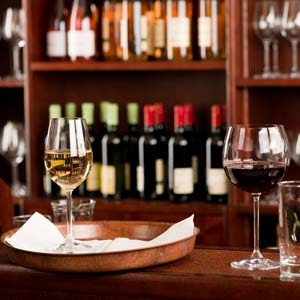Running a wine bar in
Cape Town is not quite the easy ride many people seem to think it is.
3 well known wine bars have closed their doors in the past 2 months.
From my 8 years
of running the wine bar, The Nose, here are 3 major reasons why I believe running a wine bar
is unprofitable and unsustainable.
1. People don’t understand wine bars
People often don’t
realize that a wine bar sells more than just wine – if I had a rand for every
person who asked if we sold beer/coffee/soft drinks/food, I’d have been a hell
of a lot richer than I am.
Although South Africans drink a lot, there isn’t really
a culture of going out drinking, as there is in the UK or the US. When people do
meet up for a drink, it is generally as
a precursor to going out for dinner – people stay for one drink and then move
on.
If customers think a wine bar only sells wine,
they will often just go straight to the restaurant or choose a more
generic type of bar for their aperitifs. And with the cocktail culture coming
back to the fore, with its trendy image, wider appeal and much greater
profitability, it is difficult for a wine bar to compete.
2. Customer’s eyes are bigger than their palates
People
love to see a massive wine list, full of interesting-sounding wines, big names and older vintages, but what they actually want to purchase is a glass of
Sauvignon Blanc for R22.
If you’re lucky, you can tempt them to try one glass
of something exciting before they switch to something cheaper, but the hard
fact is that few people are prepared to spend the night drinking glasses of
wine which cost R40-50 each.
Buying a bottle for R200 seems far more acceptable
than buying 4 glasses for R50 each and apart from that affecting your sales, it
also creates a problem here with stock management.
As soon as you open a bottle
of wine, you open a limited window of time for you to sell it – generally 2-3
days. If it’s an expensive bottle, there are not that many people who are
prepared to pay for it and the risk of having to throw it away is much higher.
And that can be your entire profits gone down the drain.
3. Perceived profiteering pisses off punters
A bottle of
decent vodka costs around R150 and can be sold for over R450 giving you a profit
of roughly 300%.
A bottle of Castle costs about R6.50 but generally sells for about R20
giving you a profit of over 300%.
But these mark-ups are not deemed acceptable for
wine. It is harder in Cape Town than other cities because people are able to
visit the farms and believe that restaurateurs buy wine at greatly reduced
prices.
In fact, most trade prices are around cellar door, sometimes even
slightly more and by the time distributor’s fees are included, there is often
very little difference between the retail price you see on the supermarket
shelves and the price a restaurateur has paid.
Add in the Cape Town corkage
culture and making profit on wine becomes very difficult.
All of this is
accentuated if wine is your major selling point.
What’s the answer?
It’s difficult running any hospitality outlet in
the current economic climate, but I do think these are an extra set of unique
problems which only wine bars face.
Whether these are the reasons for all the
wine bar closures of recent times, I cannot say, but the fact remains that Cape
Town has no dedicated wine bars left in business.
If anyone wants to attempt it
again, I wish them the very best of luck!
Follow @CathyMarston and @food24 on twitter for food and wine news.

